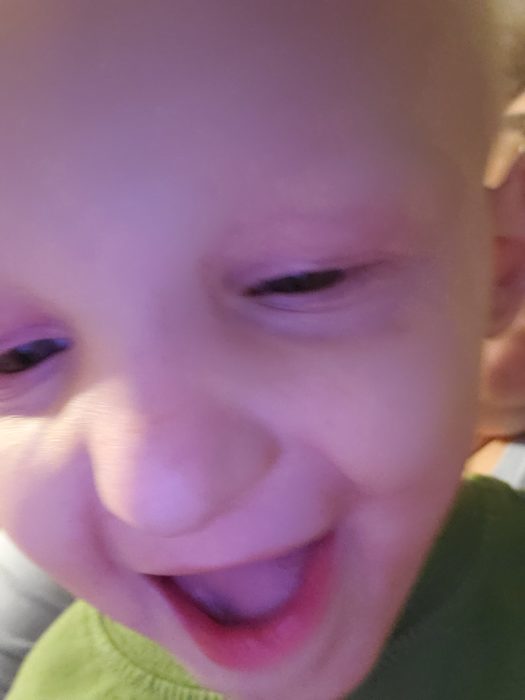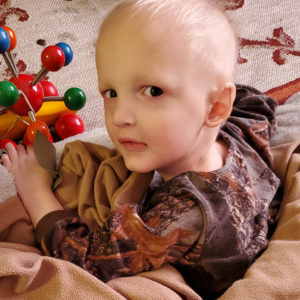If you ever attend a National Foundation for Ectodermal Dysplasias (NFED) Family Conference, you will see that many children affected by ectodermal dysplasia are often thin in appearance.
It’s true that growth abnormalities are common in children with ectodermal dysplasias. NFED families participated in a study we funded which documented that children with ectodermal dysplasias had growth deficits from an early age through adolescence.
Some children affected by ectodermal dysplasias may be diagnosed with failure to thrive or FTT. According to Kathleen J. Motil, M.D., Ph.D., FTT is a term used to describe inadequate growth in early childhood.
In a new library article, Failure to Thrive and Ectodermal Dysplasias, Dr. Motil describes the various factors that can cause FTT. Ectodermal dysplasia is one of them.
“In children with ectodermal dysplasia, the absence of teeth and diminished saliva production are the major risk factors for FTT because they contribute to chewing and swallowing difficulties,” Dr. Motil said. “Food allergies associated with ectodermal dysplasia also may limit food choices and contribute to inadequate food consumption, particularly when the child is a picky eater.”
– Dr. Motil
Dr. Motil provides insight into how prevalent FTT is, how to evaluate whether a child has FTT and how to treat the condition in the library article.
“Treatment should include age appropriate nutritional counseling to achieve catch-up growth in all children, including those with ectodermal dysplasias,” Dr. Motil said.
Download Failure to Thrive Library ArticleEmotional Support
For parents, it can be difficult when your child is not growing as expected. You want them to be healthy, to be getting enough nutritional intake. Working with your physician on a treatment plan is essential and will help put you on the right path.
If you need emotional support, contact the NFED and talk to a member of our staff. We are here to listen and offer resources. We can connect you with other families who have experienced FTT with their children. Or, you can share in one of our Facebook groups and learn from other families. Know you are not alone!
Samuel’s Story
In the following story, Kara-Lee Hite talks about her son, Samuel, and what it’s like to have a child diagnosed with FTT.
By Kara-Lee Hite
Our son, Samuel, has hypohidrotic ectodermal dysplasia (HED), and turned two in December of 2020. He became a big brother in November of 2020, and so far, his sister shows no signs of the condition. I’m waiting to hear if I’m a carrier or not.
When he was born, nothing seemed that unusual. His appetite was fine, though we eventually noticed he didn’t get chunky and had slow weight gain. He also had skin issues, which started to lead us towards a diagnosis.
At about four months of age, he was diagnosed with a bad case of eczema by a dermatologist we’d seen, thinking he just had really bad cradle cap. That doctor also mentioned that our son had certain facial features that seemed unusual.
But he didn’t want to worry us. Since we knew we might be moving in the near future, he said he’d wait until we knew what we were doing. He mentioned that a geneticist might be needed.
Samuel continued to grow, but had delays with rolling and speaking. And, his teeth never came in. Month after month, we thought surely, this month would be the one where he’d get his first tooth.
Those teeth never came. As he outgrew pureed food, no longer liking the texture, I started making soft foods for him to gum. Mac and cheese is one of his favorites now, but part of the reason I cook it so often for him is because it’s a struggle to get him to eat.
He ended up with the failure to thrive diagnosis before he turned 1, if my memory serves me right. So anything he wants to eat, he gets, if he can safely eat it.
Recently, he lost a pound from his prior visit. We redoubled our efforts to get him to gain weight, and he gained five ounces in two weeks, but then he lost those ounces.
He had another weight check on February 19 to see if he’s regained any weight. Whatever we find will be given to a dietitian in Indianapolis at upcoming appointment.
Hopefully, he can help us find ways to increase Samuel’s appetite and gain weight. We’re still working on trying to find someone to make his first set of dentures.
A week from today, he’ll be having impacted ear wax removed, a nasal endoscopy, and there’s also a possibility that tubes will be put into his ears. We’re hoping that if his ears have been causing discomfort while eating, that it will resolve with these actions. He’s currently in the second lowest percentile for weight, and is four pounds lighter than most boys his age.
I just want to see my son thrive. I’ll do anything. I just hate the feeling of helplessness I feel when I encourage him to eat and he won’t, or when he will, but doesn’t seem to gain any weight. I wish people would stop asking me if he’s sick, because he’s so thin.
– Kara-Lee Hite

He has no fat underneath his eyes. He looks tired all the time, even if he’s not. He’s a happy, wonderful boy, and I wish people could see past his exterior. I hope I can keep him healthy enough to give people a chance to get to know him.
I’m scared of him losing weight because I feel like I could lose him. He’s one of my miracle babies. I won’t let that happen.
Supporting Each Other
Does your child have FTT now or when they were little? Tell us more about your experience in the comments below.

Although this was in 1981 & 82, I’ll NEVER forget it. No one in Johannesburg had ever heard of ED (including me), and Troy’s first pediatrician angrily accused me of neglecting him because of failure to thrive! And my husband said “You just WANT there to be something wrong with him”… one of the low points of my 76 years
We’re happy that you found the NFED and able to get information for Troy, no matter his age.